This article was co-authored by Padam Bhatia, MD. Dr. Padam Bhatia is a board certified Psychiatrist who runs Elevate Psychiatry, based in Miami, Florida. He specializes in treating patients with a combination of traditional medicine and evidence-based holistic therapies. He also specializes in electroconvulsive therapy (ECT), Transcranial Magnetic Stimulation (TMS), compassionate use, and complementary and alternative medicine (CAM). Dr. Bhatia is a diplomat of the American Board of Psychiatry and Neurology and a Fellow of the American Psychiatric Association (FAPA). He received an MD from Sidney Kimmel Medical College and has served as the chief resident in adult psychiatry at Zucker Hillside Hospital in New York.
There are 12 references cited in this article, which can be found at the bottom of the page.
This article has been viewed 91,354 times.
Antidepressants are medications prescribed to individuals to help treat depression, anxiety, addiction, eating disorders, chronic pain, and various other psychiatric disorders and health conditions. In many countries such as the United States and Canada, antidepressants can only be legally obtained through prescriptions issued to you by your healthcare provider. You can get antidepressants if you need them through visiting with your doctor and getting a prescription.
Steps
Consulting With a Doctor
-
1Make an appointment with your healthcare provider. A psychiatrist or family physician can perform an examination and speak with you about why you feel you might need antidepressants to treat your health condition. In most cases, meeting with a psychiatrist is considered ideal since psychiatrists specialize in mental health disorders, have more experience working with antidepressants, and can prescribe the antidepressants that will work best for you.[1]
- Research local psychiatrists who are covered under your insurance plan and set up an appointment by phone or online.
- You can get a referral from your primary care physician to go to a psychiatrist or you can find one by using a site like ZocDoc or Thero.org.
-
2Be specific when describing your symptoms to your doctor. Providing as many details as possible can give your doctor the insight needed to correctly diagnose your disorder and prescribe the right type of antidepressant.[2] For example, those diagnosed with bipolar disorder may need two different medications to manage manic and depressive phases, but someone with anxiety disorder may need one specific type.
- Mention physical symptoms of depression such as insomnia and lack of energy, as well as mental symptoms such as sadness or feelings of helplessness.
Advertisement -
3Explain any causes of your stress and depression. Identifying the cause of your stress and depression can help your doctor properly diagnose and treat your condition and prescribe the right type of medication. Be honest with your doctor when asked if there are any stressors in your life.[3]
- For instance, perhaps you are in a toxic relationship currently that has caused you to become depressed. Mention this to your doctor.
-
4Inform your doctor of the duration of the symptoms. It’s important to let your doctor know how long you’ve been experiencing symptoms of depression.[4] In most cases, individuals who’ve been experiencing long-term stress are the best candidates for antidepressants. Those experiencing short-term stress or depression due to being separated from a partner or laid off from work may not be considered ideal candidates.
-
5Explain any steps you’ve taken to treat your symptoms. Let them know of any medications that you’re currently on, including vitamins and birth control. This can help your doctor better understand which treatments may or may not work to help improve your condition. For example, inform your doctor of any drugs or medications you’ve taken in an attempt to treat depression, and whether you’ve been exercising more frequently or eating healthier foods to improve your condition.
- Some of the drugs you are currently on might also be causing your depression or anxiety and your doctor might prescribe you a new kind to alleviate the symptoms.
-
6Come with suggestions and questions. After having done some research on different forms of antidepressants, come with some suggestions and questions for your doctor. Tell them what medication you’re interested in and why and ask questions about the side effects of the drug.[5]
- Find out what antidepressants they typically prescribe and which ones their patients have had the best experiences with.
-
7Obtain a prescription from your doctor. Most antidepressant medications are only available via prescription and can be obtained from a licensed pharmacist. Before you leave the doctor’s office, make sure your doctor provides you with a prescription for the antidepressant or that someone from the office calls the prescription in for you.[6]
- Find out more about the cost of your medication and whether it will be covered by your health insurance provider, if applicable. Certain antidepressants may be more costly than most other types of prescription drugs and many offer generic forms that are much cheaper.
-
8Have your prescription filled at a pharmacy. Many commercial drugstore and pharmacy chains are open 24 hours a day, seven days per week so you can fill your prescription and begin treatment immediately. Bring in your paper prescription note in order to get your prescription filled. You may have to wait a few hours or even a day before it is ready to be picked up, especially if the medication isn’t in stock.[7]
-
9Follow up with your doctor. After you get your prescription, you might have questions for your doctor. Or perhaps you have started taking the medication and something doesn’t feel right. In any of these cases, contact your doctor to ask questions or set up a new appointment if necessary.[8]
- If they are not in, you can ask to leave a message or email them.
-
10Get a second opinion when necessary. Some doctors are hesitant to write a prescription for an antidepressant, believing that the patient may be able to improve their symptoms through other lifestyle changes. However, if you feel that your depression, anxiety, or other disorder is debilitating, then you can seek a second opinion. Make an appointment with another doctor or psychiatrist in your area to get their medical opinion.
Understanding and Taking Antidepressants
-
1Adhere to your doctor’s instructions when taking your medication. Taking less or more than the recommended dosage can increase your risk for side effects and other health problems. If at any point you feel the need to increase your dosage to better treat your depression, consult with your doctor first to receive approval or to discuss alternate treatments.[9]
- Contact your doctor before taking any new medications or supplements while taking your antidepressant.
-
2Stay on your medication. Many antidepressants take several weeks to begin working, so keep taking them as your doctor has prescribed.[10] Set an alarm on your phone to help you remember to take your meds.
- If after a few months of regular doses you still feel that the meds aren’t working, consult your doctor.
-
3Know the side effects of your drug. The side effects will vary based upon the drug that you are prescribed. You should receive information about the drug and potential side effects from both your doctor and the pharmacist who fills your prescription.
- If you think it’s necessary, also do your own research. Find out what you can do to prevent or lessen the occurrence of these side effects, such as making dietary changes.[11]
-
4Get therapy, as well. Antidepressants may work well for you, but they tend to work better in conjunction with therapy. If you are able to afford it, seek professional counseling to help you work through your issues.[12]
Taking Additional Steps to Improve Your Mental Health
-
1Meditate. Meditation has been shown to reduce anxiety, stress and to improve the mood. Some report that it is as or more helpful than antidepressants in treating mental illness. Spend ten undisturbed minutes or more each day in a quiet space focusing on your body and your breathing. There are several apps that you can download to assist with meditation, including Headspace and Calm.[13]
-
2Exercise. Exercise is also beneficial in improving your overall physical and mental health. It provides time each day to give your mind a break while you focus more on your body. Take a walk around the neighborhood, go for a run, or join a local gym.[14]
-
3Change your diet. The diet has also been shown to be highly connected to mood. Foods high in sugar or fat tend to cause more symptoms of depression or anxiety than do foods high in protein or vitamins, like vegetables and lean meat.[15]
- Cut out fast food and sweets for one month and assess if your mood improves.
-
4Cut stress. Assess any areas in your life that are causing you undue stress and determine how you can manage or cut them. For instance, if you are often rushed every morning getting your child to school, send them on the bus or have your partner take them some mornings. Small changes can drastically improve your overall mood.[16]
-
5Spend time with friends. Try your best to avoid secluding yourself during this difficult time for you. Connect with your friends and make plans to hang out at least once per week. Go see a movie, have dinner, or just spend time chatting.[17]
- Avoid hanging out with negative friends.
-
6Get enough sleep. Sleep is also critical in maintaining emotional stability. Be sure to get a minimum of seven hours of sleep per night. Start a relaxing nighttime regimen that will help soothe you to sleep like taking a warm bath or having some hot tea.[18]
- Try to go to bed at the same time every night.
Expert Q&A
-
QuestionHow do I request antidepreesants?
 Padam Bhatia, MDDr. Padam Bhatia is a board certified Psychiatrist who runs Elevate Psychiatry, based in Miami, Florida. He specializes in treating patients with a combination of traditional medicine and evidence-based holistic therapies. He also specializes in electroconvulsive therapy (ECT), Transcranial Magnetic Stimulation (TMS), compassionate use, and complementary and alternative medicine (CAM). Dr. Bhatia is a diplomat of the American Board of Psychiatry and Neurology and a Fellow of the American Psychiatric Association (FAPA). He received an MD from Sidney Kimmel Medical College and has served as the chief resident in adult psychiatry at Zucker Hillside Hospital in New York.
Padam Bhatia, MDDr. Padam Bhatia is a board certified Psychiatrist who runs Elevate Psychiatry, based in Miami, Florida. He specializes in treating patients with a combination of traditional medicine and evidence-based holistic therapies. He also specializes in electroconvulsive therapy (ECT), Transcranial Magnetic Stimulation (TMS), compassionate use, and complementary and alternative medicine (CAM). Dr. Bhatia is a diplomat of the American Board of Psychiatry and Neurology and a Fellow of the American Psychiatric Association (FAPA). He received an MD from Sidney Kimmel Medical College and has served as the chief resident in adult psychiatry at Zucker Hillside Hospital in New York.
Board Certified Psychiatrist Just ask your doctor or psychiatrist. There needs to be an open dialogue and clear communication when it comes to a treatment plan. They may suggest you try therapy before jumping to medication, which is totally normal. Give therapy a shot first if they suggest it and then revisit the conversation in a few months or so. It may be that therapy alone is enough to treat whatever you're going through!
Just ask your doctor or psychiatrist. There needs to be an open dialogue and clear communication when it comes to a treatment plan. They may suggest you try therapy before jumping to medication, which is totally normal. Give therapy a shot first if they suggest it and then revisit the conversation in a few months or so. It may be that therapy alone is enough to treat whatever you're going through! -
QuestionCan I just switch antidepressants?
 Padam Bhatia, MDDr. Padam Bhatia is a board certified Psychiatrist who runs Elevate Psychiatry, based in Miami, Florida. He specializes in treating patients with a combination of traditional medicine and evidence-based holistic therapies. He also specializes in electroconvulsive therapy (ECT), Transcranial Magnetic Stimulation (TMS), compassionate use, and complementary and alternative medicine (CAM). Dr. Bhatia is a diplomat of the American Board of Psychiatry and Neurology and a Fellow of the American Psychiatric Association (FAPA). He received an MD from Sidney Kimmel Medical College and has served as the chief resident in adult psychiatry at Zucker Hillside Hospital in New York.
Padam Bhatia, MDDr. Padam Bhatia is a board certified Psychiatrist who runs Elevate Psychiatry, based in Miami, Florida. He specializes in treating patients with a combination of traditional medicine and evidence-based holistic therapies. He also specializes in electroconvulsive therapy (ECT), Transcranial Magnetic Stimulation (TMS), compassionate use, and complementary and alternative medicine (CAM). Dr. Bhatia is a diplomat of the American Board of Psychiatry and Neurology and a Fellow of the American Psychiatric Association (FAPA). He received an MD from Sidney Kimmel Medical College and has served as the chief resident in adult psychiatry at Zucker Hillside Hospital in New York.
Board Certified Psychiatrist You'll need to talk to your therapist or the person that prescribed you since they'll give you the proper guidance.
You'll need to talk to your therapist or the person that prescribed you since they'll give you the proper guidance.
Warnings
- Avoid alcohol.⧼thumbs_response⧽
- Don’t get antidepressants from friends or family members, since their dosages and medication types may not be compatible with your type of depression, mental disorder, or health situation. Always consult with your doctor before taking prescribed medications to lower your risk for major illness and worsened depression.⧼thumbs_response⧽
- Most antidepressants take approximately six weeks to reach their full therapeutic effect. [19] Be patient for results, and keep in mind that you may need to try several different medications before you find the antidepressant that works best for you.⧼thumbs_response⧽
- Do not abruptly stop medication before contacting your doctor. Your doctor may recommend that you gradually reduce dosage to avoid antidepressant withdrawal symptoms.[20]⧼thumbs_response⧽
References
- ↑ Padam Bhatia, MD. Board Certified Psychiatrist. Expert Interview. 3 April 2020.
- ↑ Padam Bhatia, MD. Board Certified Psychiatrist. Expert Interview. 3 April 2020.
- ↑ https://familydoctor.org/tips-for-talking-to-your-doctor/
- ↑ https://familydoctor.org/tips-for-talking-to-your-doctor/
- ↑ https://familydoctor.org/tips-for-talking-to-your-doctor/
- ↑ https://medlineplus.gov/ency/article/001956.htm
- ↑ https://medlineplus.gov/ency/article/001956.htm
- ↑ Padam Bhatia, MD. Board Certified Psychiatrist. Expert Interview. 3 April 2020.
- ↑ https://familydoctor.org/tips-for-talking-to-your-doctor/
- ↑ https://psychcentral.com/lib/how-long-do-antidepressants-take-to-work/
- ↑ http://www.nhs.uk/Conditions/Antidepressant-drugs/Pages/Side-effects.aspx
- ↑ Padam Bhatia, MD. Board Certified Psychiatrist. Expert Interview. 3 April 2020.
- ↑ https://www.psychologytoday.com/blog/know-your-mind/201504/mindfulness-versus-antidepressants-which-works-best
- ↑ https://www.health.harvard.edu/mind-and-mood/exercise-is-an-all-natural-treatment-to-fight-depression
- ↑ https://www.health.harvard.edu/blog/diet-and-depression-2018022213309
- ↑ https://neuro.psychiatryonline.org/doi/10.1176/appi.neuropsych.15030053
- ↑ https://www.helpguide.org/articles/depression/coping-with-depression.htm
- ↑ https://www.sleepfoundation.org/mental-health
- ↑ https://psychcentral.com/lib/how-long-do-antidepressants-take-to-work/
- ↑ http://www.mayoclinic.org/diseases-conditions/depression/expert-answers/antidepressant-withdrawal/FAQ-20058133
About This Article
To get antidepressants, start by making an appointment with your doctor. If you don’t have a doctor yet, find one using a website like ZocDoc or thero.org. Next, describe your symptoms to your doctor and explain any causes of stress in your life. Also, make sure you tell the doctor about any other medications you’re on, like vitamins or birth control, because these things can interact with antidepressants. Then, explain to your doctor why you think antidepressants would help you, and ask them to prescribe you some. For tips from our Medical reviewer on how to follow up with your doctor once you’ve started on antidepressants, read on!
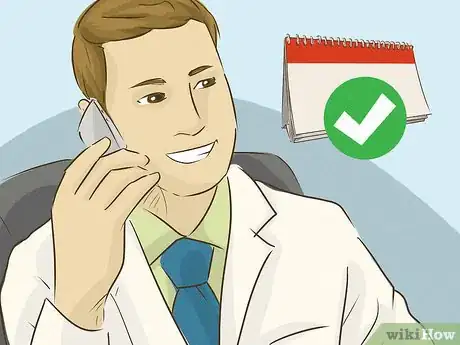

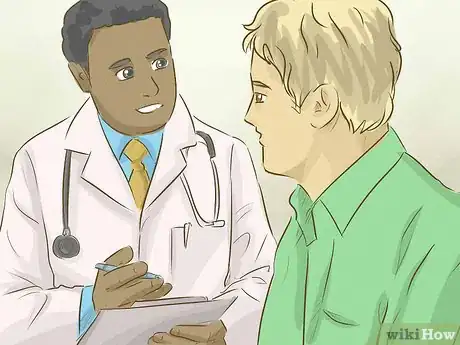
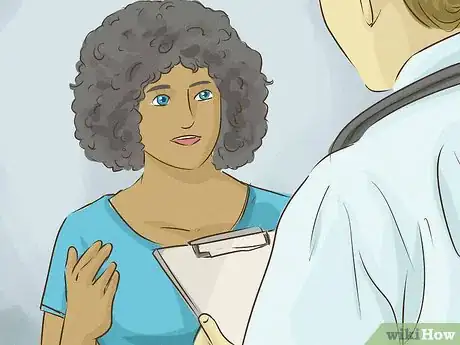
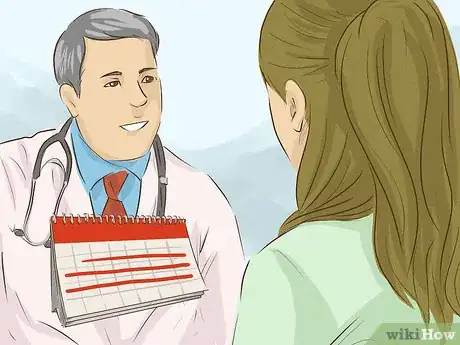
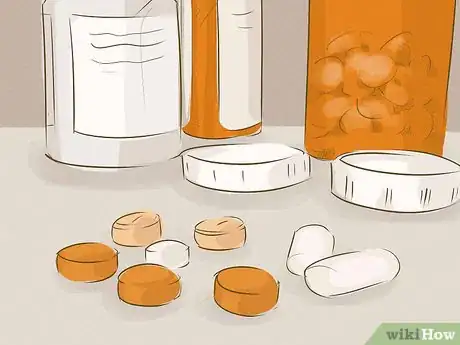
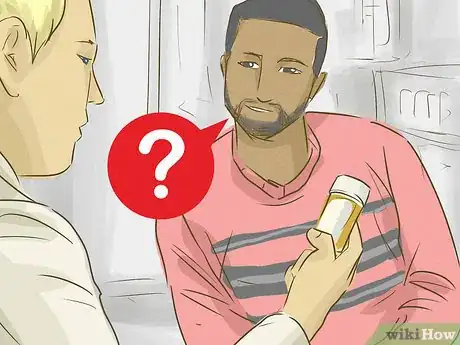
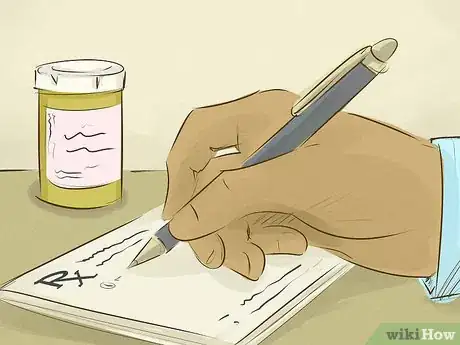
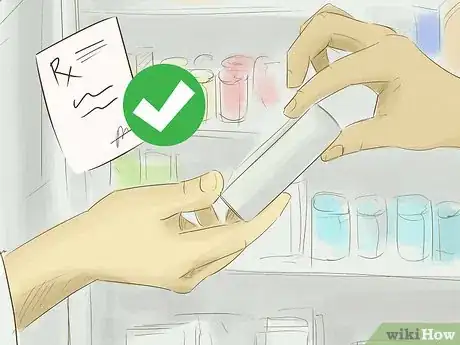
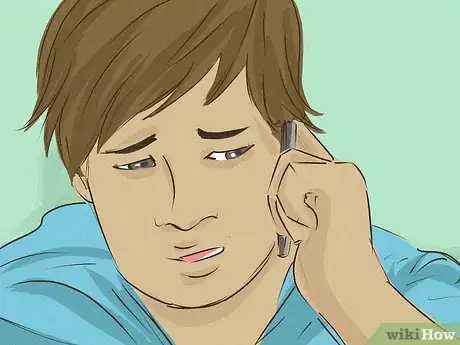
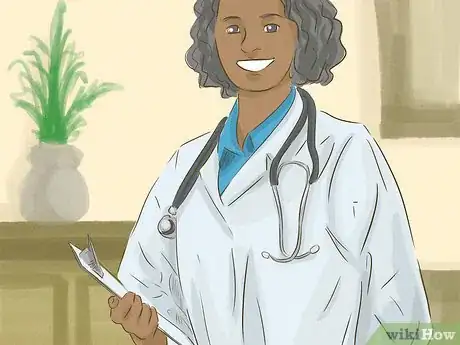
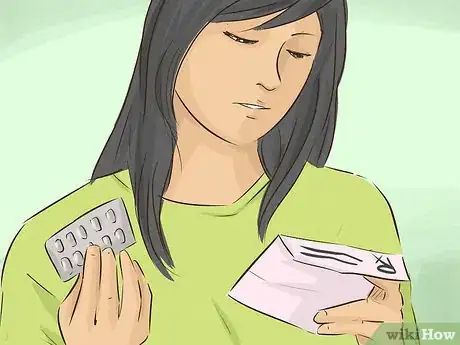
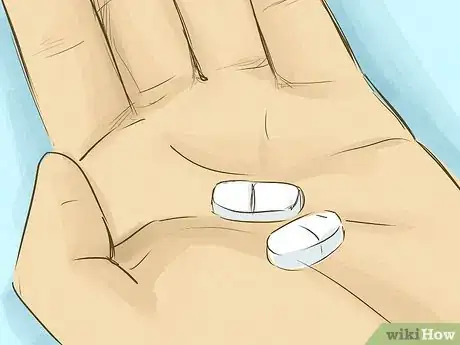
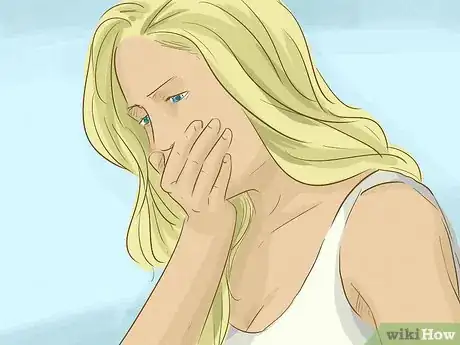
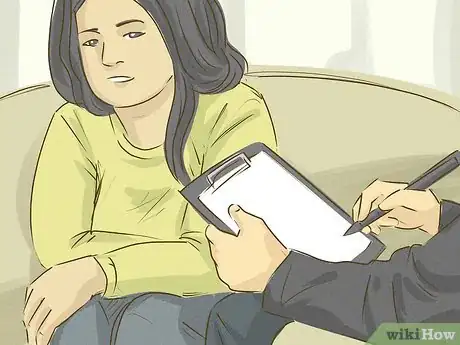
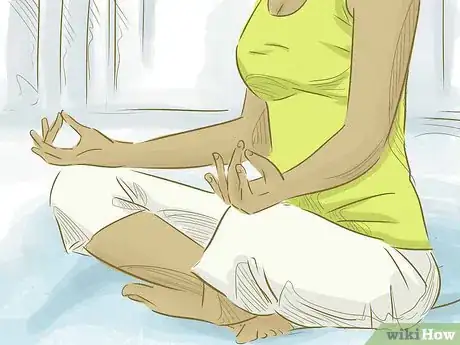
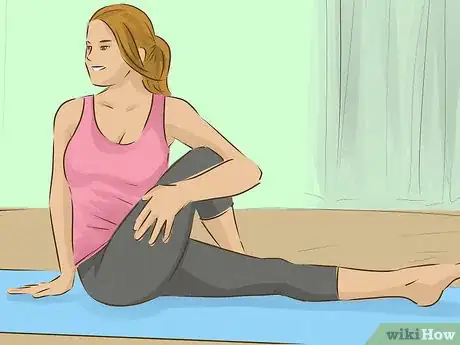
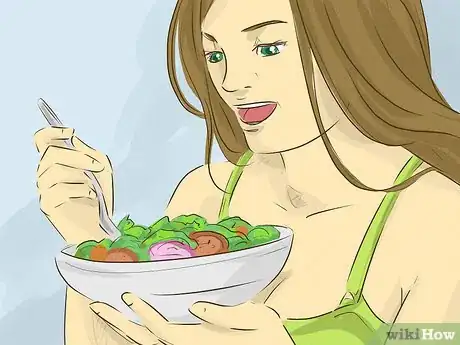


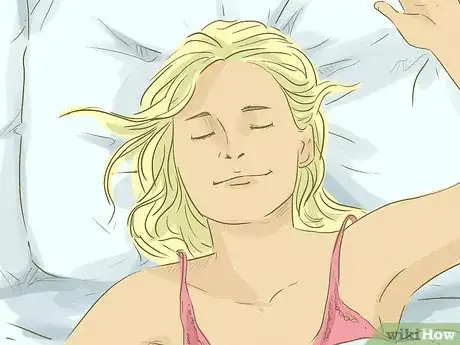
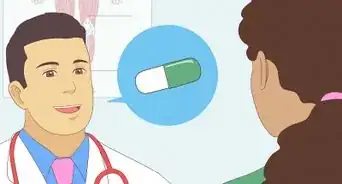

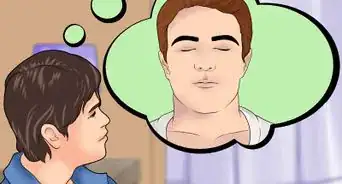


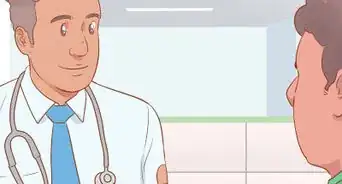
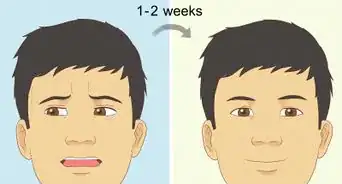
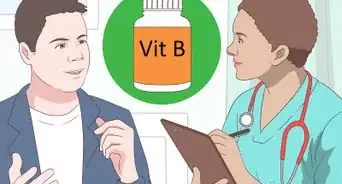
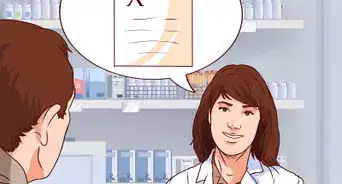

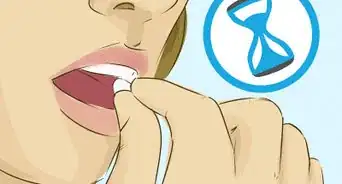
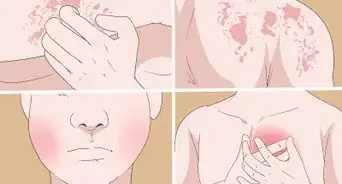
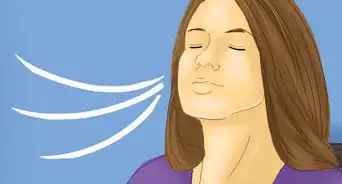








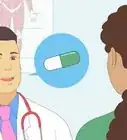






































Medical Disclaimer
The content of this article is not intended to be a substitute for professional medical advice, examination, diagnosis, or treatment. You should always contact your doctor or other qualified healthcare professional before starting, changing, or stopping any kind of health treatment.
Read More...